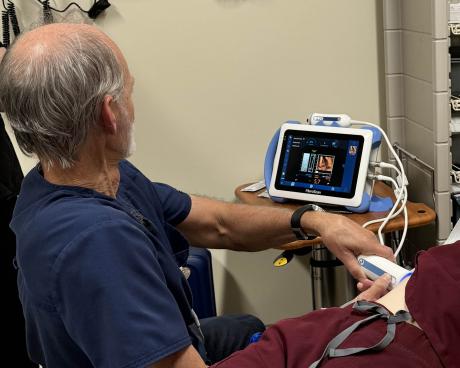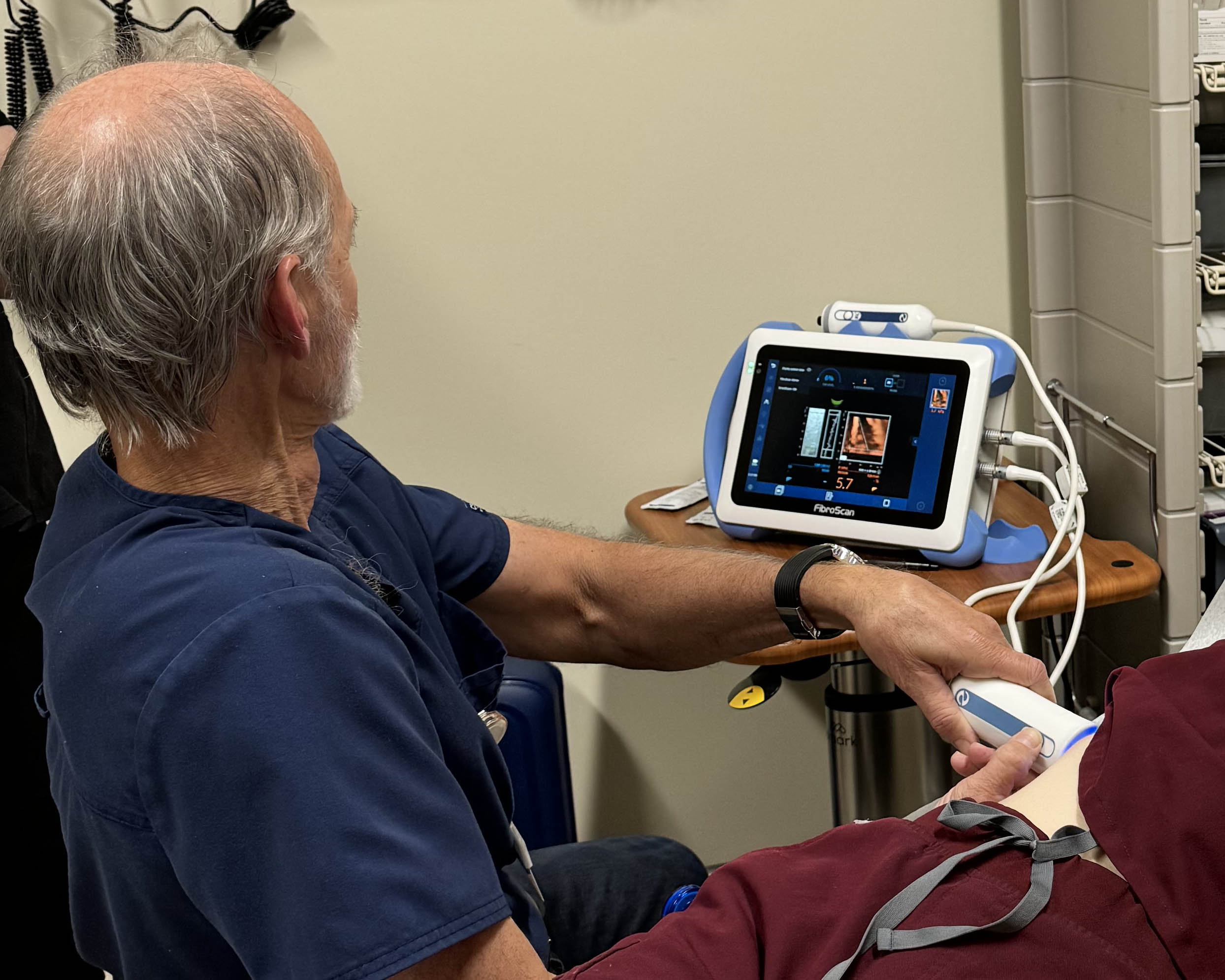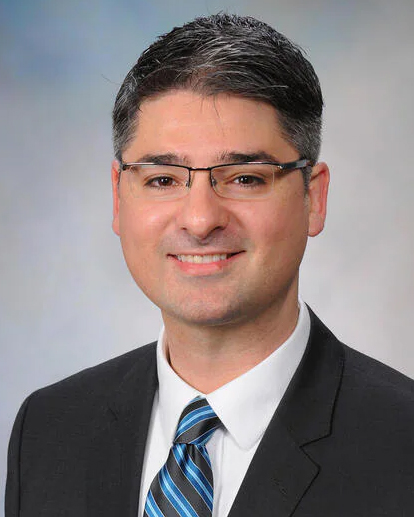FSU PrimaryHealth is home to liver scanner gifted by Mayo Clinic


“It’s a shame people have to wait until they are referred to a major transplant center to have access to this device,” said Beau Toskich (M.D., 2007), a professor of interventional radiology at the Mayo Clinic in Florida. “Our goal is to put it in the hands of primary care physicians — people who can make the most impact with an early diagnosis.”
The device Toskich is referring to is the Echosens Fibroscan, a non-invasive, precise tool to detect the earliest signs of liver disease that the Mayo Clinic donated to the Florida State University College of Medicine late last month. It will soon be put into practice at FSU PrimaryHealthTM.
“It’s like a stethoscope for the liver,” Toskich said.
And the need for such a tool is immense.
In the United States, the National Institutes of Health estimates that 25% of adults have nonalcoholic fatty liver disease (NAFLD), and up to 70% of people with Type 2 diabetes also have NAFLD. Untreated fatty liver disease can lead to inflammation and scarring, which over the years can lead to compromised liver function, liver cancer and liver failure. Many more people suffer from cirrhosis (permanent scarring) and other ailments of the liver caused by viruses or alcohol abuse.

“Liver disease is so prevalent, and yet we weren’t diagnosing nearly the number of people we should, which told me there was a gap,” Toskich said. “Coming back to my roots at FSU, I tried to identify that gap.”
Having such state-of-the-art technology available at FSU PrimaryHealth, located in a southwest Tallahassee neighborhood considered a “health care desert” before the clinic opened five years ago, can translate into early diagnosis and intervention, improving quality of life for patients and their families.
The Echosens Fibroscan at FSU PrimaryHealth will further complement the work of gastroenterologists in the community and help reduce healthcare disparities.
Not only does scientific inquiry run deep in Toskich’s FSU roots, but so does the desire to provide access to health care to the underserved.
“I find it gratifying to see that we do indeed instill the essence of our mission into our graduates,” said Alma Littles, M.D., interim dean of the College of Medicine. “And, after meeting with Dr. Toskich and others at Mayo, we quickly agreed that this device must get into the hands of primary care physicians who can diagnose and treat patients at a much earlier stage.
“I thank the Mayo Clinic and Dr. Toskich for this gift that will have an immediate and positive impact on patient care in our community.”
The Fibroscan is simple in its design, which means physicians can be trained quickly to use it.
“Soon after we received it, we were able to hold a training session for FSU PrimaryHealth physicians that took literally just a few hours,” said Cyneetha Strong, M.D., the clinic’s co-medical director. “The scan will soon be ready for clinical implementation and we look forward to witnessing the impact it will have on patient care.”
According to Echosens, Fibroscan has been cited in more than 4,200 peer-reviewed publications and has more than 180 international guidelines. Using the Mayo Clinic’s gift at FSU PrimaryHealth further underscores the College of Medicine’s mission to educate and develop exemplary physicians who practice patient-centered health care, discover and advance knowledge, and respond to community needs, especially through service to elder, rural, minority and other underserved populations.
“We are grateful for Dr. Toskich’s foresight, the Mayo Clinic’s generosity, as well as for all the support we receive from our donors,” Dean Littles said. ”"It makes us, and our communities, stronger and healthier.”
Photo above: George Whiddon, M.D. demonstrates the use of the Echosens Fibroscan which was gifted to the College of Medicine by the Mayo Clinic and will soon be in use for diagnosing liver diseases at FSU PrimaryHealthTM . (Photo courtesy Pauline Hoffman.)

